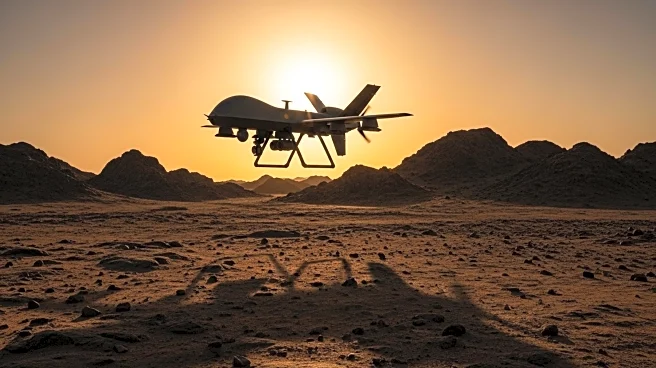What's Happening?
US forces have successfully targeted and killed Abdul Rahman Al-Halabi, a senior member of the Islamic State in Syria. Al-Halabi was identified as the head of external operations and security for the terrorist group. This operation marks a significant blow to ISIS, as Al-Halabi played a crucial role in orchestrating and managing the group's activities beyond its immediate territories. The Iraqi service confirmed his identity and role within ISIS, highlighting the importance of this operation in disrupting the group's operational capabilities.
Why It's Important?
The elimination of Abdul Rahman Al-Halabi is a strategic victory for US forces and their allies in the ongoing fight against ISIS. As the head of external operations, Al-Halabi was instrumental in planning and executing attacks outside of ISIS-controlled regions, posing a threat to global security. His death is likely to disrupt the group's ability to coordinate complex operations, potentially reducing the threat level posed by ISIS in the region and beyond. This development underscores the continued commitment of US forces to counter-terrorism efforts and stabilize the Middle East.
What's Next?
Following the successful operation, US forces and their allies may intensify efforts to dismantle remaining ISIS networks in Syria and neighboring regions. The death of Al-Halabi could lead to a power vacuum within the group, prompting internal struggles for leadership and potentially weakening its operational effectiveness. Monitoring and intelligence operations are expected to continue, focusing on identifying and targeting other key figures within ISIS to further degrade its capabilities.
Beyond the Headlines
The operation against Al-Halabi may have broader implications for US foreign policy and military strategy in the Middle East. It highlights the importance of intelligence and precision strikes in counter-terrorism operations, potentially influencing future military engagements in the region. Additionally, this development may affect diplomatic relations with countries involved in the fight against ISIS, as collaborative efforts are crucial for sustained success.








